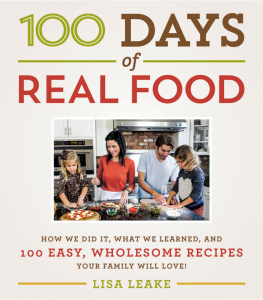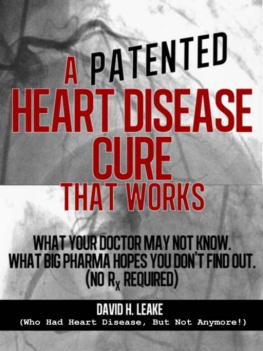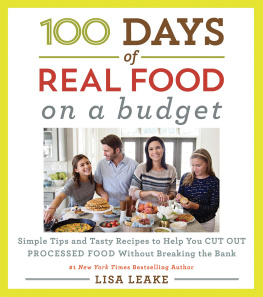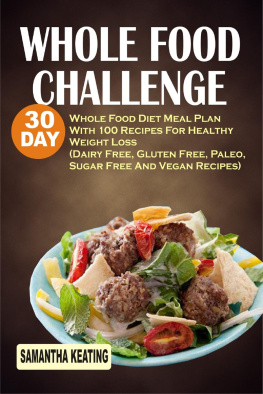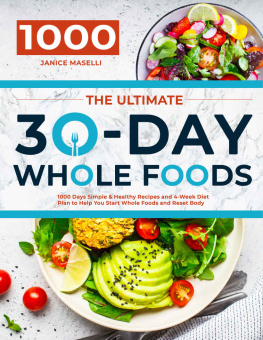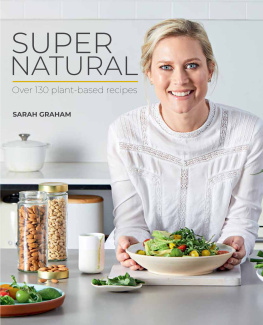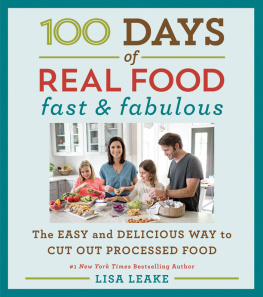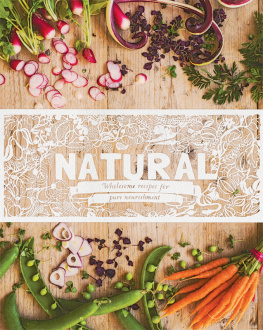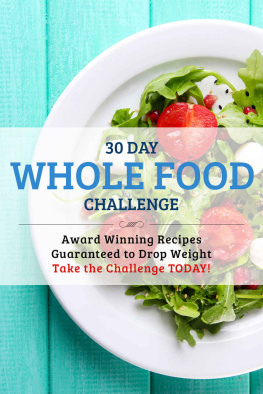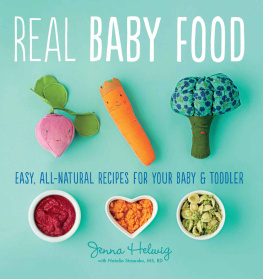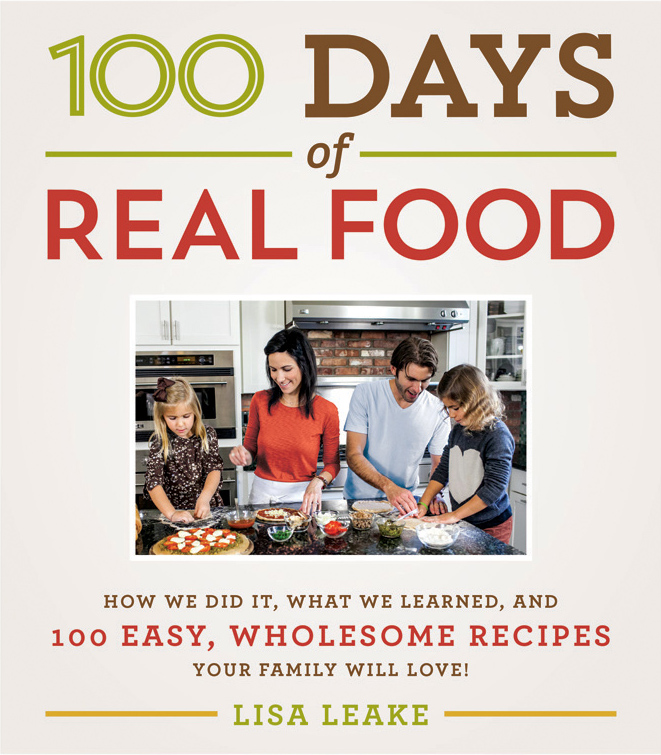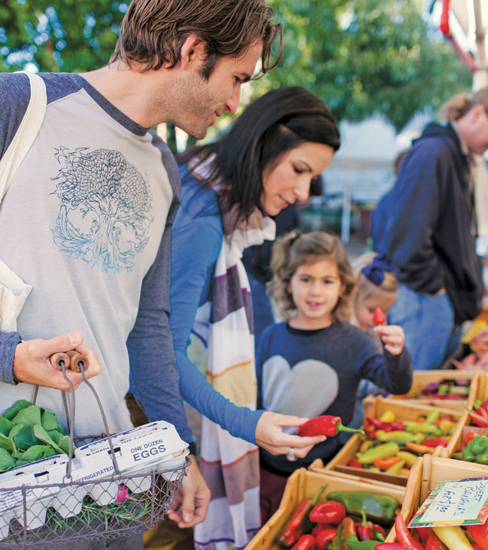
To my amazing husband and daughters,
who have wholeheartedly supported me throughout this journey. You are the light of my life.

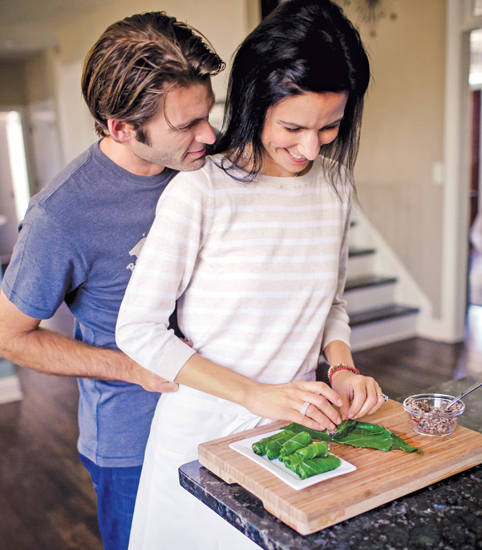
CONTENTS
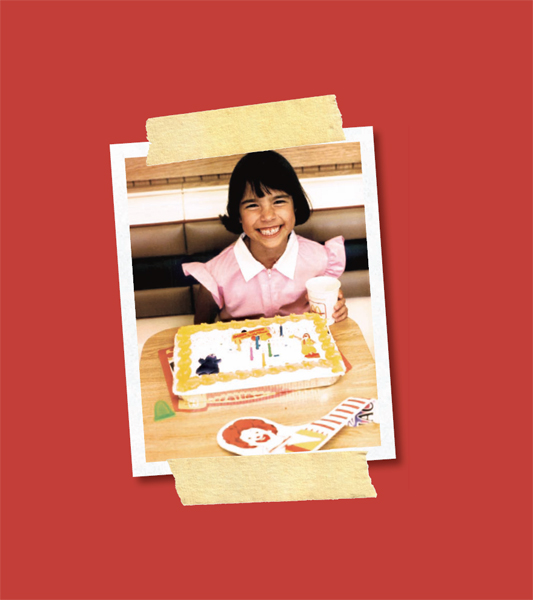
I was a child of the eighties raised in Tennessee by Midwestern parents who, like millions of others, didnt think too much about where their food came from. We were a fairly ordinary family who shopped at our local supermarket chain, ate boxed cereal (Golden Grahams and Honey Nut Cheerios were my favorites), made our sandwiches on white bread, went out for Chinese food, occasionally ordered pizza, and even celebrated my birthday with a party at McDonalds (pictured). A favorite family snack was Doritos topped with melted cheese.
Thats not to say my parents didnt cook. My dad was actually the head chef of the house and frequently made risotto (with white rice) and homemade pasta (from white flour). I even remember him feeding us kids veal at a very young age. My mom wasnt as fond of cooking, so she was more likely to fall prey to convenience foods like cans of cream of mushroom soup, packets of seasoning mixes, and even the occasional frozen dinner. And while my parents served vegetables at our house, I clearly remember my brother making a point to never eat anything green (he made an exception for cupcake icing). His resistance became a family joke, and, while our parents often served vegetables with dinner, they never really insisted that eating them was a requirement.
While I was happily consuming the Standard American Diet at home in Tennessee, my husband, Jason, spent his first several years of life on his familys hippie commune in Oregon. Its hard to imagine anything more opposite to my childhood. If Jasons parents needed milk they got it from their cow; if they needed eggs they got them from their chickens; if they needed flour they ground it themselves; if they needed honey theyd get it from their beehive; if they needed clothes they went to the thrift store or fashioned their own; and if they needed a new barn they built it themselves (occasionally even naked!). After several years in Oregon my husbands family started moving around the country and ended up in South Carolina. Removed from their life in Oregon, they started consuming more industrial food, but they didnt totally forget their years of living off the land. My husband was the kid in the cafeteria with the boring whole-wheat sandwiches and no Little Debbie snacks. (Not being a huge vegetable or salad person myself, I once asked my mother-in-law if she really liked eating so many vegetables or if she just did it for her health.)
As a young adult I was one of the lucky ones who could eat whatever I wanted and easily get away with it. So I did. Ive always had a very big sweet toothand still dobut in the old days I wouldnt hesitate to satisfy it with Nutty Bars, Swiss Rolls, Snickers bars, homemade chocolate chip cookies, andeven as a new mom handfuls of brightly colored Skittles.
I wasnt a total junk food junkie, though. I was adamant that our two daughters eat at least one type of fruit (conventionally grown, of course) at both breakfast and lunch and at least one vegetable with dinner. I did feed them Kraft macaroni and cheese mixed with cut-up highly processed hot dogs ( just as when I was a kid), but my rule was no more than once a week. Looking back I honestly dont know why I had such a rule. I certainly wouldnt have been able to explain it, but something about giving them too much Easy Mac just didnt feel right. I also had my limits on fast food restaurants and long ago voluntarily gave up on some of the more notorious ones like McDonalds and Taco Bell.
While I enjoyed cooking and had the inclination and desire to feed my family healthy foods, in reality, I was only buying foods that were healthy by food industry standards. I had never before read an ingredient label, never been to a farmers market, never eaten an entire piece of whole-wheat bread, never shopped at a health food store, and never purchased anything that was organic (at least not on purpose). I could never have explained to you what it meant for something to be organic and why it mattered. And I certainly didnt understand all those tree hugger types who cared so much about it.
Meanwhile, my husband would routinely decline my homemade Aunt Jemima pancakes topped with highly processed pancake syrup, request a separate loaf of bread so he could have his own whole-wheat sandwiches, and ask why I was buying junk food for the kids when I purchased something like Go-Gurt (it was just yogurt, right?). He likes to give me a hard time by saying hed been trying to tell me for years to change my waysespecially since I do the meal planning and food shopping for our family. But I never really believed him until one day I also heard it on Oprah. Yep, Oprah.
I was just minding my own business one evening when an Oprah show came on entitled Food 101 with Michael Pollan. The days topicWhere Our Food Comes Fromwas alarming because I suddenly realized I had no clue. And even though it was tempting to just continue living in the dark, I turned on the show and simply could not look away, nor could I unlearn the shocking information I was hearing. I was so intrigued by Michael Pollans common sense about highly processed foods and why they should be avoided that I went out and grabbed the only book of his that was available at our library at the time, In Defense of Food. My husband followed suit, and together we also watched the documentary Food, Inc.
What I continued to learn was shocking and frankly kept me up at night. Pollan was calling the packaged foods that I thought were healthy food-like substances. He explained that these foods were specifically designed never to rot, causing a disturbing increase in diet-related illnesses, and were nowhere near resembling the wholesome foods our ancestors had survived on for centuries before us.
I was overwhelmed just looking at our pantry. How could the Goldfish and pretzels I was feeding my kids basically be refined junk food with very little nutritional value? What in the world would they eat as a snack if those were no longer options? How could the strawberry syrup I was using to flavor their milk not even have strawberries as an ingredient? And how could I switch to whole-grain bread and pasta if I hated the taste?
My husband assured me that we didnt have to change our eating habits overnight, but I was on a mission. Now that I knew better, how could I spend even one more day feeding my precious children produce that was sprayed with chemicals, meat from unhealthy feedlot animals, and factory-made fruit snacks with no real fruit in them?
I dragged my husband (who was a step ahead of me in knowledge) and two young children to every supermarket in the area. Id go down every single aisle and say, Okay, what can we eat in this section? These outings were painful at times, but I had to start reading ingredient labels to figure out what crackers we could buy, what cereals were okay, where we could purchase acceptable meat, and what breads we should avoid. I had to completely relearn how to food shop and cook for my family now that we were trying to avoid white flour, white sugar, conventional produce, factory farmed meats, and packaged foods with more than five ingredients, and Im not going to lie... it wasnt exactly a good time.

